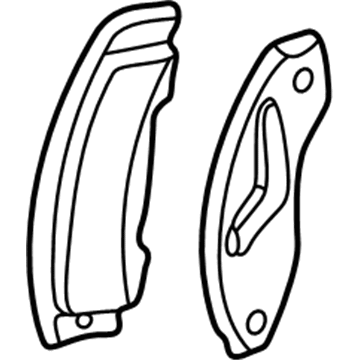FordParts
My Garage
My Account
Cart
OEM 2000 Ford Ranger Brake Pads
Disc Brake Pad Set- Select Vehicle by Model
- Select Vehicle by VIN
Select Vehicle by Model
orMake
Model
Year
Select Vehicle by VIN
For the most accurate results, select vehicle by your VIN (Vehicle Identification Number).
1 Brake Pads found
2000 Ford Ranger Brake Pads, Front Part Number: 1U2Z-2V001-TA
$44.51 MSRP: $66.65You Save: $22.14 (34%)Ships in 1-2 Business DaysProduct Specifications- Other Name: Pad; Disc Brake Pad Set, Front; Front Pads
- Manufacturer Note: excludes electric
- Position: Front
- Replaces: BRF-652, XU2Z-2V001-ARA, 1L2Z-2001-CA, XL2Z-2B121-BA, 2L5Z-2001-AA, XL2Z-2B120-BA, XL2Z-2001-BA
- Base No.: 2V001
- Item Weight: 4.60 Pounds
- Item Dimensions: 2.6 x 5.5 x 9.0 inches
- Condition: New
- Fitment Type: Direct Replacement
- SKU: 1U2Z-2V001-TA
- Warranty: This genuine part is guaranteed by Ford's factory warranty.
2000 Ford Ranger Brake Pads
If you're seeking quality and affordability, look no further than our extensive inventory of genuine 2000 Ford Ranger Brake Pads available at FordPartsDeal.com. You can confidently purchase our OEM 2000 Ford Ranger Brake Pads as they are supported by the manufacturer's warranty and our hassle-free return policy, alongside the benefit of our fast delivery service.
2000 Ford Ranger Brake Pads Parts Q&A
- Q: How to service and repair brake pads on 2000 Ford Ranger?A: When it is time to service brake pads, it is suggested to raise the car and remove the wheel, as well as to check the pad thickness. Change broken pads in axle sets. Measure disc thickness, inspect components and resurface where necessary. Wipe off, fit new pads, squeeze pistons of caliper, and assemble. Lastly, check that the brake system is working.













